Like many of you this week, I’ve made the jump over to the new Threads app, Meta/Facebook’s version of Twitter, which feels like a strong contender for a new home. Still trying to find all of my friends there, so I hope you’ll swing by and say hi!
I’m intrigued by this post from Adam Mosseri, the head of Threads’ sister site, Instagram, asserting that politics and news aren’t worth the trouble they’d cause the platform. I hope we can convince him otherwise in the weeks ahead. Threads can play a vital role in our civil discourse by providing an alternative town square where accurate information can be responsibly shared. If the new platform commits to good moderation, the kind that Twitter used to aspire to providing pre-Elon, it can make it easier for those who want to be informed consumers of information educate themselves.
As if to confirm the need for that sort of space on social media, we learned on Friday that the District of Columbia Bar Association had taken the first step towards disbarring Rudy Giuliani, who has already had his license to practice law suspended in New York and faces further ethics review there. The conclusions reached by the Bar investigative panel about Giuliani’s misconduct is information that should be shared widely, so people can evaluate it and reach their own conclusions. Doing that on social media permits people to learn about and share information that may prove critical to democracy and the outcome of the 2024 presidential race.
The report concluded that Giuliani’s “misconduct here sadly transcends all his past accomplishments. It was unparalleled in its destructive purpose and effect. He sought to disrupt a presidential election and persists in his refusal to acknowledge the wrong he has done." That’s a ringing condemnation from people who carefully considered the facts.
The bar grievance process began with a panel, here consisting of two lawyers who are members of the District of Columbia Bar and one resident of the District who is not a lawyer. They took months to assess the evidence they’d gathered, including a week of hearings and testimony from Giuliani himself, before producing their 38-page decision. I sat on a similar committee for the Birmingham, Alabama Bar Association, and know from that experience that the work done by these committees is thorough and detailed. There is an emphasis on finding ways to help lawyers who are struggling and rehabilitate them. So it speaks volumes that that isn’t what happened here.
The panel decision must be considered by the full bar grievance committee in the District of Columbia before it becomes final, and that decision can be taken to the D.C. court of appeals. The panel focused on Giuliani's all out push to disqualify more than 600,000 Pennsylvania voters’ ballots. They wrote, "His hyperbolic claims of election fraud and the core thesis of the Pennsylvania litigation were utterly false, and recklessly so." But they also focused on the larger picture surrounding Giuliani’s misconduct in a passage near the end of the report that should be widely circulated and discussed:
“Finally, public confidence in our courts, the law, and the legal profession are very much at stake in this unprecedented case. We cannot blind ourselves to the broader context in which Mr. Giuliani’s misconduct took place. It was calculated to undermine the basic premise of our democratic form of government: that elections are determined by the voters. The Pennsylvania claims were carefully calibrated to blend into a nationwide cascade of litigation intended to overturn the presidential election. Since John Adams established the precedent in 1800, no president – until 2020 – refused to accept defeat and step away from that office. And no lawyer – until 2020 – used frivolous claims of election fraud to impede the peaceful transition of presidential power and disenfranchise hundreds of thousands of voters.
Mr. Giuliani’s effort to undermine the integrity of the 2020 presidential election has helped destabilize our democracy. His malicious and meritless claims have done lasting damage and are antagonistic to the oath to ‘support the Constitution of the United States of America’ that he swore when he was admitted to the Bar. This is not a partisan political view; prominent conservatives who spent ‘most of [their] adult lives working to support the Constitution and the conservative principles upon which it is based’ have concluded that ‘[r]epetition of these false charges causes real harm to the basic foundations of the country, with 30 percent of the population lacking faith in the results of our elections” and “is not sustainable in a democracy.’”
This is a detailed report produced by a group that is, by its very nature, bipartisan. It’s not a witch hunt. But unfortunately, this is the type of report that tends to get lost in our fast-paced news cycles. This one is too important to lose track of. This line from the paragraphs above really stands out: “Mr. Giuliani’s effort to undermine the integrity of the 2020 presidential election has helped destabilize our democracy.” Giuliani was not doing that work on his own behalf. He was doing it in the service of his client, Donald Trump. Seeing the conclusions based on the evidence against Giuliani also lays bare, perhaps in a way some of his supporters, or people who continue to tolerate him, may not have been previously exposed to, Trump’s complicity in election interference.
That’s not the only news about Giuliani. There are reports he sat down with prosecutors in the special counsel’s office for a proffer session. This sort of “queen for a day” meeting, where a subject or target of an investigation reveals what their testimony would be if they ultimately struck a cooperation deal with prosecutors, can be revealing for both sides. But sitting down for a proffer doesn’t necessarily mean Giuliani is cooperating, or that prosecutors would have him if he wanted to—he comes with a whole horde of credibility issues they’d have to navigate before he could be successfully presented as a witness. Nonetheless, the reporting is interesting in and of itself because of where it likely came from. Federal prosecutors would not leak this kind of information and that pretty much leaves Giuliani as the source. And, an individual identified as Giuliani’s “political advisor” confirmed the reporting, with Giuliani retweeting it.
Could Giuliani, who reportedly has cash flow issues exacerbated by the suspension of his law license and issues in his personal life, want to make sure Trump knows he’s considering dealmaking with the feds? This wouldn’t be the first time Giuliani has dangled the possibility he might cooperate to entice Trump to keep him close. Giuliani, whose work on Trump’s behalf in Ukraine was central to the first impeachment of the former president was asked by a reporter if he was concerned Trump could “throw him under a bus” to avoid responsibility for those charges. Giuliani responded at the time, “I’m not, but I do have very, very good insurance, so if he does, all my hospital bills will be paid.” His attorney was very quick to interject that Giuliani was joking.
Despite the notion circulating at the time that Trump might accuse his lawyer of freelancing in Ukraine in order to get himself off the hook, he remained close to the president, who was perhaps motivated by the prospect of what Giuliani could tell investigators to if he switched sides. Perhaps Giuliani is trying to do that again, arranging to beneficial stay in Trump’s orbit, if he can get a better deal there than he thinks he can get from prosecutors—who may not be all that into him anyhow, unless he or other witnesses can corroborate everything he has to say. Perhaps we’ll see Rudy profess his love for Trump again, as he has so many times before, leading to his current predicament.
Meanwhile, in the every-accusation-is-also-a-confession department, the term “weaponization of the federal government” has new meaning. Former FBI employees Pete Strzok and Lisa Page sued for wrongful termination and invasion of privacy, respectively, after text messages confirming their distaste for the former president surfaced early on in the Russia investigation, and Trump relentlessly attacked them. Strzok was fired and Page resigned.
Then-deputy attorney general Rod Rosenstein authorized the release of the two’s texts to the press.
Earlier this week, federal district judge Amy Berman Jackson, ordered Trump to sit for a deposition in the case, limited to two hours. FBI Director Chris Wray has already been questioned. But here’s where it gets interesting. In connection with discovery, former Trump chief of staff John Kelly submitted a sworn statement saying that his former boss “questioned whether investigations by the IRS or other federal agencies should be undertaken into Mr. Strzok and/or Ms. Page.” In other words, Trump wanted to know whether he could weaponize the federal government to take revenge on people he perceived as enemies.
Kelly’s statement was based on contemporaneous notes he took in 2018, and he said that while Trump wanted to see the pair investigated, he was unaware of Trump actually giving an order to go after Strzok and Page. But there were some folks at the FBI who Trump saw as enemies who did come under IRS scrutiny: former Director Jim Comey and acting Director Andrew McCabe.
The two former high ranking FBI official were audited, along with their wives, and subjected to a very unusual and supposedly random audit that is sometimes referred to as an “autopsy without benefit of death” because of its invasive look at all aspects of the taxpayer’s finances. It wasn’t until reporting surfaced almost exactly a year ago that the two men learned they had both undergone the process, which only about 5,000 out of 153 million taxpayers a year underwent in 2017. What are the odds?
At the time, Comey told the Times, “Maybe it’s a coincidence, or maybe somebody misused the I.R.S. to get at a political enemy. Given the role Trump wants to continue to play in our country, we should know the answer to that question.” His comments deserve fresh inquiry now.
Finally tonight, in the category of things that make you go hmmmm, NBC’s Vaughn Hillyard reported that Roger Stone accompanied Trump on a campaign stop in Iowa and then hopped on his plane with him as Trump headed to a Saturday afternoon rally in Las Vegas. Trump pardoned Stone, who was convicted by Trump’s Justice Department, the December before he left office, saying the prosecution was tainted by "potential political bias." Stone was convicted of making false statements, obstruction and witness tampering in connection with the Mueller investigation. His sentencing recommendation was seven to nine years until then Attorney General Bill Barr stepped in and ordered prosecutors to walk it back. Trump initially commuted Stone’s sentence, ensuring he didn’t have to spend time in prison, before pardoning his long-time friend and advisor.
No other presidential nominee would voluntary be seen in the company of a would-be political trickster with multiple felony convictions, pardon or not. It’s a good reminder that nothing about the former president or his desire to retake the White House is normal or principled. In a time when so much of Trump’s horrible misconduct seems to be accepted as “Trump being Trump,” these stories can be planted like seeds to help people awaken from the fever dream of Trump that still has a grip on so many people in our country. We cannot give up on that process of helping people see the truth about Trump for themselves, and although it can be a slow and frustrating process, civil discourse continues to be worth the effort.
Finally, I wanted to say that in the past month I’ve been so amazed by those of you who were early subscribers to Civil Discourse and now, as you’re renewing for the next year, are taking the time to email and share your own stories about advancing the Republic. I really enjoy hearing from you, both in email and in the comments. Thank you so much for making it possible for me to devote my time to this work, which feels very important as we head into another presidential election cycle. If you’re not already a paid subscriber and you’re enjoying Civil Discourse, I hope you’ll consider up-subscribing. But we live in challenging times, and I understand that not everyone can afford or wants to buy a paid subscription. I’m happy to have you here either way and I’m glad we’re all committed to saving the Republic. She needs us.
We’re in this together,
Joyce




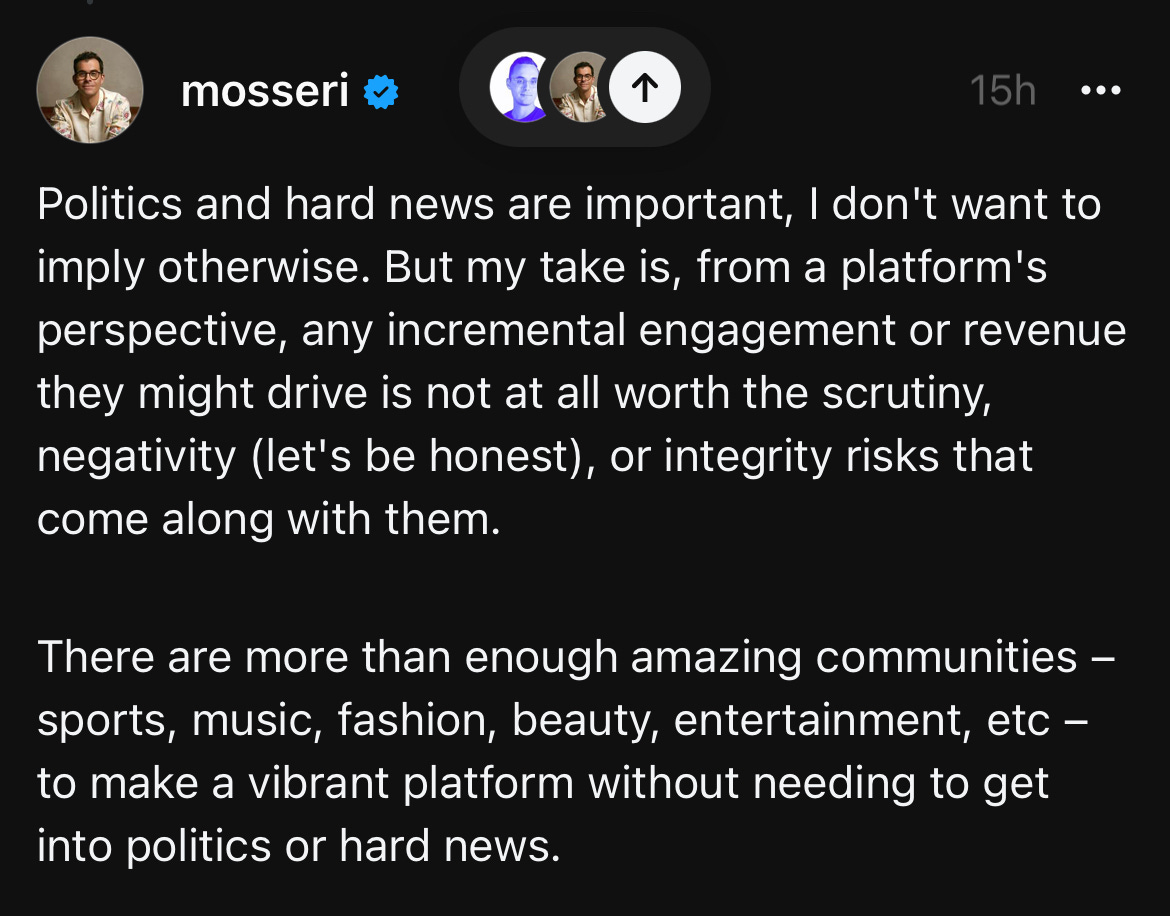
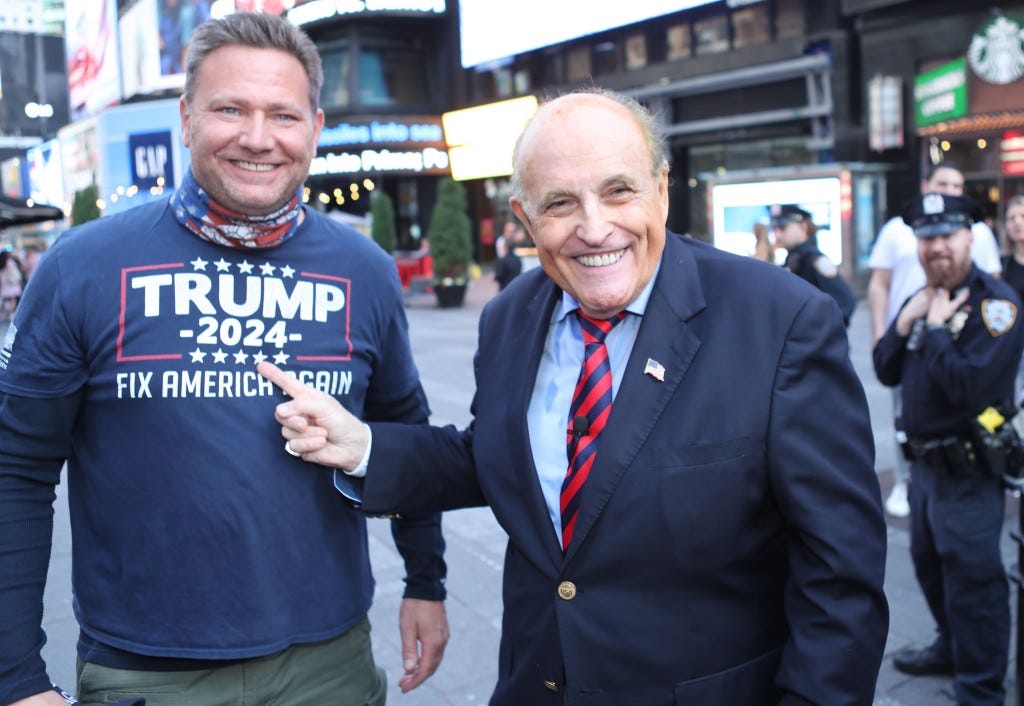
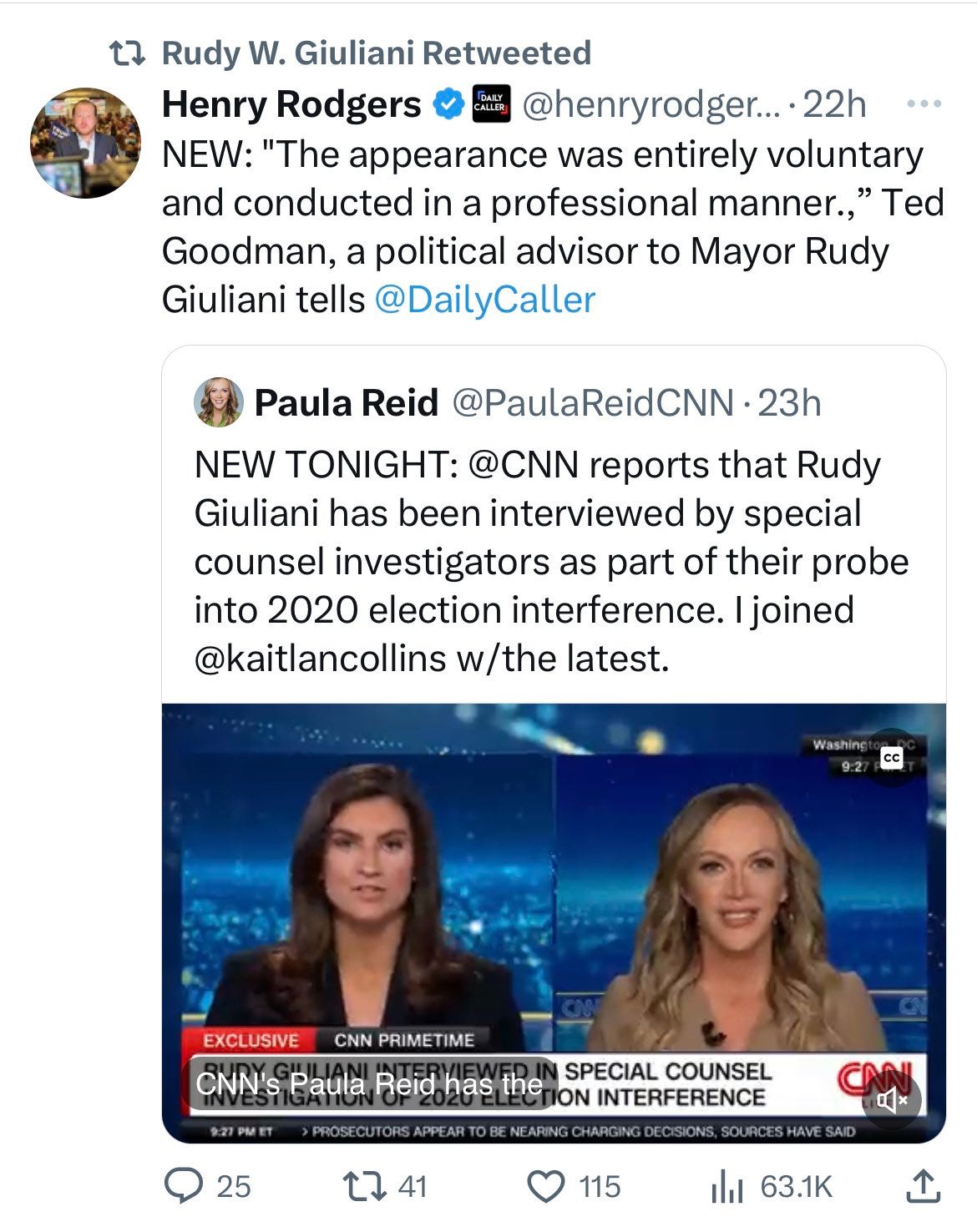
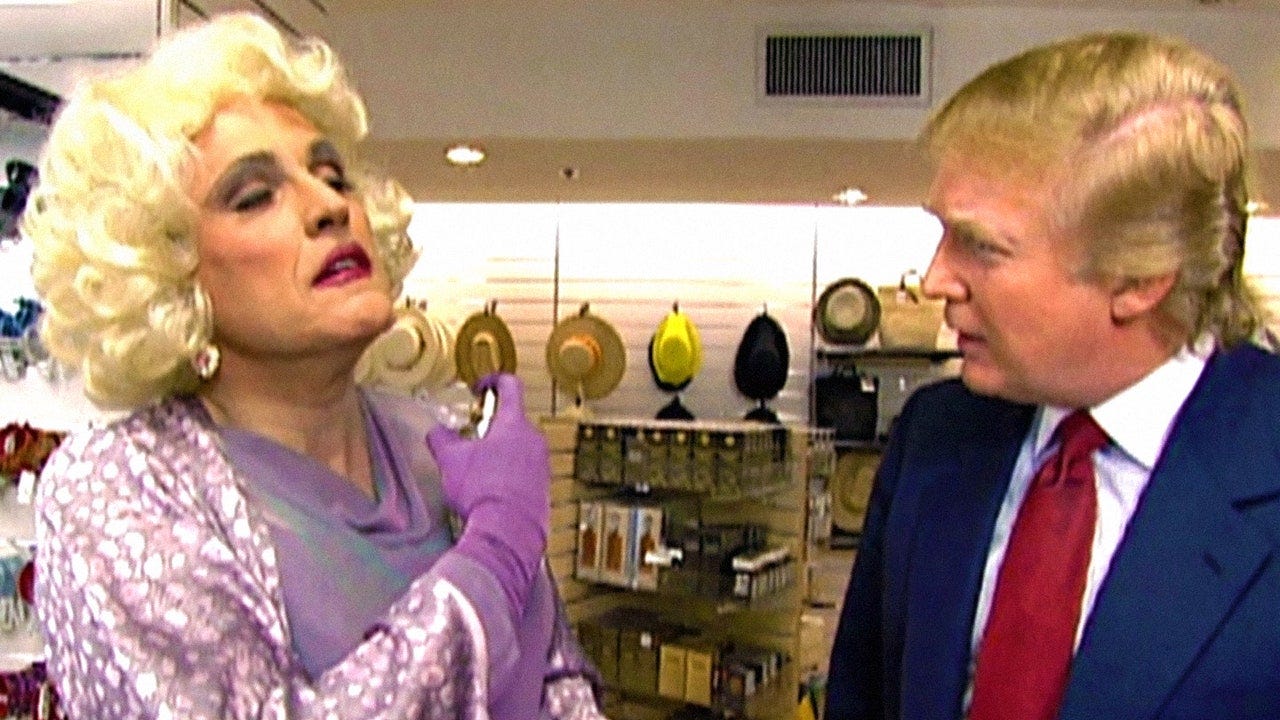
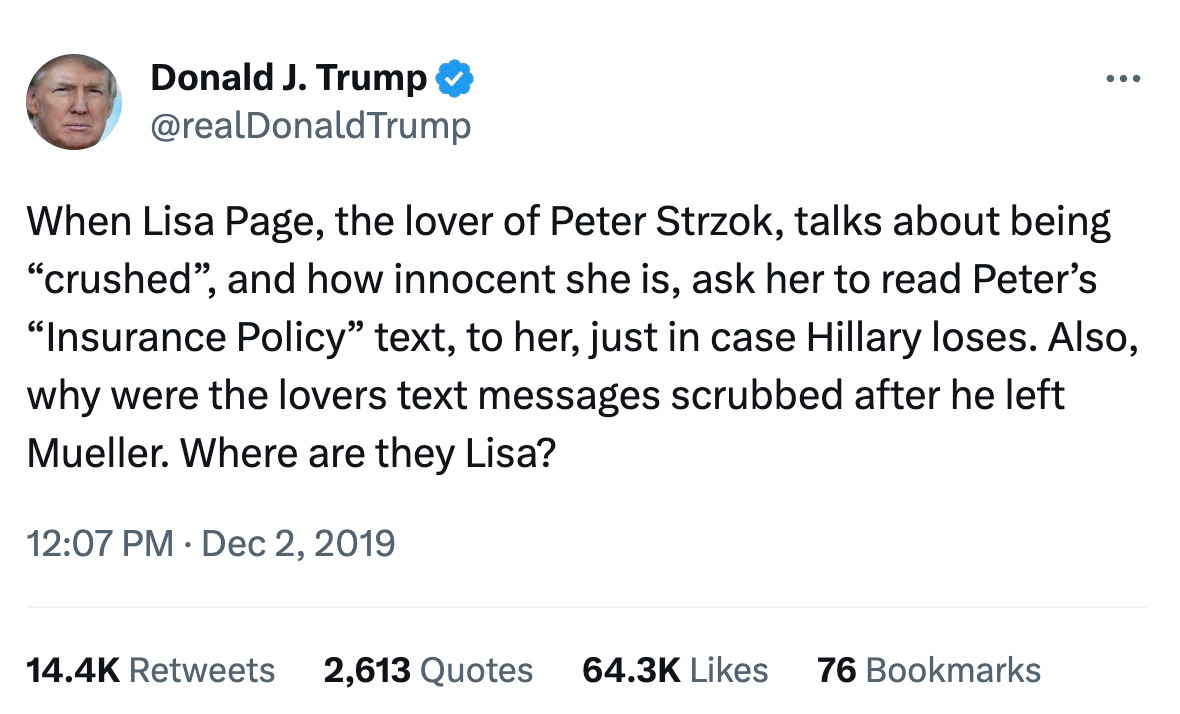

I really love how you write, Joyce. It’s cleared direct, informative and pithy. Awesome.
Please clarify why Trump considers Comey an enemy when it was Comey whose public statements about Hillary Clinton helped elect him. It was Comey who did not tell the public that the FBI was investigating Russia's interference on behalf of Trump in the 2016 election.